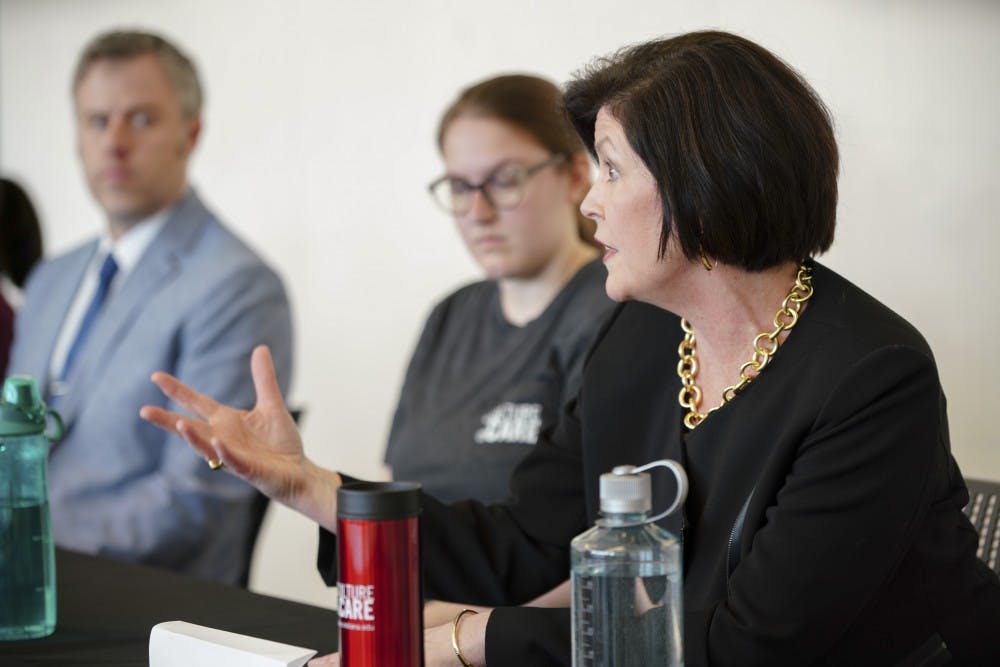Students and mental health professionals gathered Wednesday to discuss the ways mental health issues are portrayed in the media, on the internet, on campus and the stigmas surrounding them.
The panel encouraged attendees to break the stigmas and to be more open to when talking about mental health. Mental health issues are as common and just as normal as physical ailments, said Media School Associate Professor Lesa Major.
“We should come out of the womb with a physical therapist and a counselor,” she said.
The panel discussion, titled “Words Matter: A conversation about mental health and language,” took place in the Global and International Studies Building, with 18 people attending. Part of Culture of Care Week, the panel’s goal was to destigmatize mental health issues and start an honest conversation, the panel's moderator, Emmalee Fishburn, said.
The media does a bad job of properly describing those who struggle with mental health and often look for extreme cases to cover rather than being honest, said Media School Associate Professor Andrew Weaver.
“They need to be more cautious in the way they portray mental health issues,” Weaver said. “There is more work to be done in the way we add context.”
Negative portrayals of mental health issues within popular culture are detrimental to society, said Fama Zaidi, a counselor with Counseling and Psychological Services.
News outlets also associate mental health issues with instability and other negative qualities, Major said. She also said in order to make a story more exciting, news outlets will twist intense stories to include a mental health aspect.
“Most people who have a mental health issue are rarely violent,” Major said.
The panel also discussed how social media can have positive and negative effects on mental health. Weaver said he has found through his research that reading other users’ posts on social media increases social isolation, but posting yourself increases self-esteem.
High social media use can also cause focus and sleep issues that trigger stress, Zaidi said. These issues are very common among college students, and they often don’t seek help.
“There is still such a stigma associated with seeking help,” Major said. “It’s almost more accepted to seek medication than to seek counseling.”
Recognizing mental health issues quickly and seeking help are important steps for students to take, the panel said.
“Students don’t talk with us about mental health issues until it boils over,” Weaver said.
To end the discussion, the panel spoke about how mental health issues can vary and said they wanted students to be aware of it.
“Every college student is different, so every mental health issue is different,” Zaidi said.




